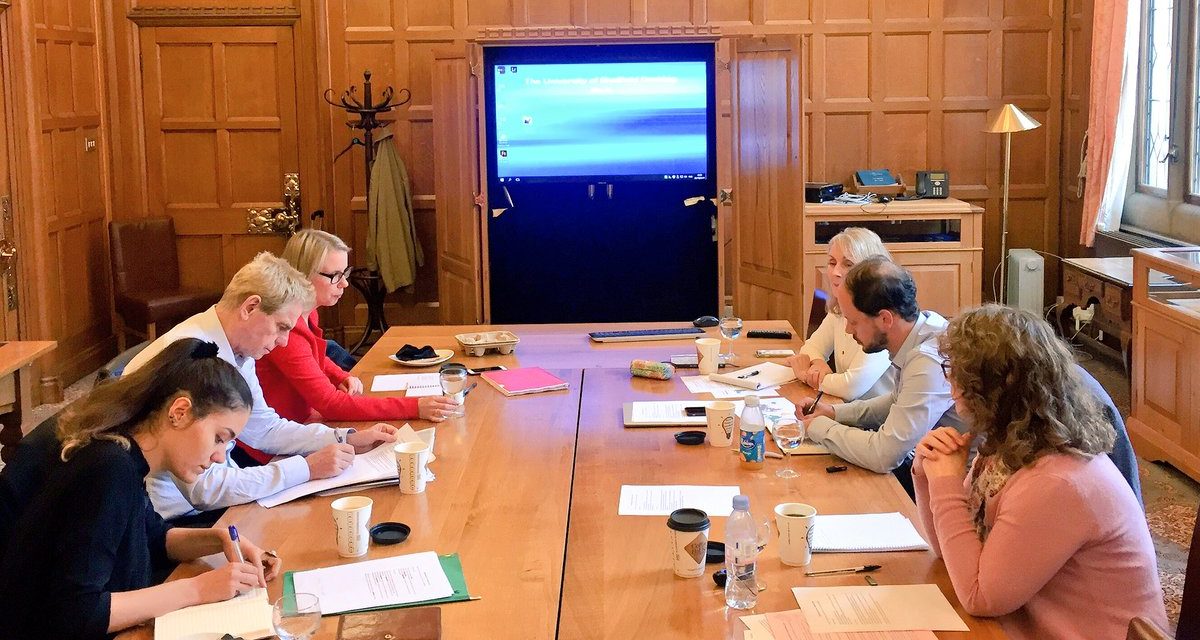POSITION PAPER Jackie Harrison and Stef Pukallus
- The factual mass media and journalism can contribute to both sustaining peace and generating conflict.
- Conflict is caused by an incompatibility of views.
- Sustainable peace requires a turn from incompatibility to compatibility of views amongst the members of civil society. The factual media and journalism can play a crucial role in facilitating greater compatibility.
- Civil society can be understood (following Jeffrey Alexander), in its ideal form, as solidary sphere based on common values, a common goal and a feeling of belonging to this sphere. It is a sphere in which difference is tolerated and where both compatible and incompatible views are discussed openly without fear in a form of dialogue.
- A strong and vibrant civil society is autonomous from the State, Religion and the Market and can therefore resist attempts of corruption, threats and intrusions by them thereby protecting the members of civil society and the integrity of civil society itself.
- Civil society has its own institutions. Some of them are communicative such as the mass media, public opinion polls and civil associations. Others are regulatory such as political parties and the legal institutions. Both are crucial in building strong civil societies.
- We focus on the role of the factual mass media and journalism because we believe in its vital role in helping to foster compatibility of views within civil society by engaging in civil norm building
- Civil norms provide the underpinning of peaceful, civilised and associational life. They include values, mores, customs, sentiments, beliefs, ideas, habits of the heart, a certain spirit, manners and moral opinions (Tocqueville) as well as skills, behaviour, routines and traditions. Civil norms are mundane in that they are shaped by daily practices and everyday experiences.
- In post-conflict settings they comprise three categories:
o Assent – that is the acceptance of the existence of and the need for toleration of the conflicted histories regarding the conflict and the actor’s role in the conflict, the acceptance that each member of the community is of equal civil standing and a commitment to be future-facing and to endorse the need for civil peace and to agree to actively help the peace process or to at least passively assent to it. o Rules of conduct and behaviour – this category of civil norms is concerned with public life at the level of daily routines and interactions and how these meet common values and accepted standards of behaviour as well as agreement on how to tolerate different viewpoints and handle disagreement and dissent. Ultimately this category is constitutive of the norms of civil conduct in public life and provides for the basis of trust and solidarity o Capacity and citizenship building – that is the empowerment of individuals to be citizens in political terms through elections; in civil terms through civil protest and consent as well as the building of civil associations but also in economic, social and educational terms. It includes the (re-) building of civil institutions, the development of communicative spaces for debate and dialogue on issues of common concern as well as being a space of adjudication and judgement.
- Civil norms are culturally and contextually specific. Therefore, the civil norms approach does not apply a one-size-fits-all top-down format.
- (Re-)building civil society is crucial in peacebuilding. Only with a strong and autonomous civil society that agrees on the civil norms it operates by can power be held accountable.
- Accordingly, peacebuilding is about much more than good governance and politics. Peacebuilding should be and needs to be concerned with building civil structures rather than only political ones.
- This is because sustainable comprehensive peace requires civil and political institutions, a free flow of information and a change in the attitudes of people that makes violence unnecessary.
- For the factual mass media to contribute to such sustainable comprehensive peace and to be able to act on behalf of civil society rather than the State or the Market, journalists and journalism have to be safe.
- They can only be safe and build the necessary capacity for civil resistance to non-civil and anti-civil power if journalism safety becomes a key component of peacekeeping.
- This in turn requires inter-agency dialogue around the safety of journalism and journalists.
- Only through such an inter-agency approach to building the factual mass media as a sustainable civil institution can peacekeeping help build sustainable comprehensive peace and come closer to fulfilling SDG 16.10 in post-conflict settings.

